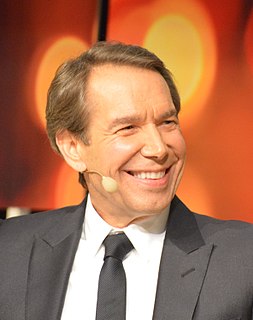A Quote by Gilbert K. Chesterton
[Buddhism and Christianity] are in one sense parallel and equal; as a mound and a hollow, as a valley and a hill. There is a sense in which that sublime despair is the only alternative to that divine audacity. It is even true that the truly spiritual and intellectual man sees it as sort of dilemma; a very hard and terrible choice. There is little else on earth that can compare with these for completeness. And he who does not climb the mountain of Christ does indeed fall into the abyss of Buddha.
Quote Topics
Abyss
Alternative
Audacity
Buddhism
Buddhism And Christianity
Choice
Christ
Christianity
Climb
Compare
Completeness
Despair
Dilemma
Divine
Does
Earth
Else
Equal
Even
Fall
Hard
Hill
Hollow
Indeed
Intellectual
Little
Man
Mound
Mountain
Only
Parallel
Sees
Sense
Sort
Spiritual
Sublime
Terrible
True
Truly
Valley
Very
Which
Related Quotes
Christ remains the most influential figure in history. Any list of world-transforming individuals would no doubt include Moses, Buddha, and Muhammad. Moses, Buddha, and Muhammad, however occupy totally different places in Judaism, Buddhism, and Islam than Christ occupies in Christianity. Moses, Buddha, and Muhammad never professed to perform miracles; indeed they never claimed to be anything more than men. They viewed themselves simply as God's messengers. Christ is the only person in history who has defined a whole religion around his person.
The search for a "suitable" church makes the man a critic where God wants him to be a pupil. What he wants from the layman in church is an attitude which may, indeed, be critical in the sense of rejecting what is false or unhelpful but which is wholly uncritical in the sense that it does not appraise- does not waste time in thinking about what it rejects, but lays itself open in uncommenting, humble receptivity to any nourishment that is going.
Don`t be imitators. The mind is an imitator, because it is easier to play the game of imitation than to become authentically true. Many ideas have been given to you: become like a Buddha, become like Jesus. become like Krishna - as if you have to become everybody else EXCEPT yourself. As if God is only against you. He`s for Krishna, for Christ, for Mahavir, for Buddha - only against you. Then why does He create you? Then He seems simply foolish. Why does He go on creating you? If He`s interested in Buddha, Hc can create Buddhas. Why you?
The psychotic does not merely think he sees four blue bivalves with floppy wings wandering up the wall; he does see them. An hallucination is not, strictly speaking, manufactured in the brain; it is received by the brain, like any 'real' sense datum, and the patient act in response to this to-him-very-real perception of reality in as logical a way as we do to our sense data. In any way to suppose he only 'thinks he sees it' is to misunderstand totally the experience of psychosis.
A true spiritual teacher does not have anything to teach in the conventional sense of the word, does not have anything to give or add to you, such as new information, beliefs, or rules of conduct. The only function of such a teacher is to help you remove that which separates you from the truth of who you already are and what you already know in the depth of your being
Few countries have produced such arrogance and snobbishness as America. Particularly is this true of the American woman of the middle class. She not only considers herself the equal of man, but his superior, especially in her purity, goodness, and morality. Small wonder that the American suffragist claims for her vote the most miraculous powers. In her exalted conceit she does not see how truly enslaved she is, not so much by man, as by her own silly notions and traditions. Suffrage can not ameliorate that sad fact; it can only accentuate it, as indeed it does.
Either it is true that a medicine works or it isn't. It cannot be false in the ordinary sense but true in some alternative sense. If a therapy or treatment is anything more than a placebo, properly conducted double-blind trials, statistically analyzed, will eventually bring it through with flying colours. Many candidates for recognition as orthodox medicines fail the test and are summarily dropped. The alternative label should not (though, alas, it does) provide immunity from the same fate.
The question has often been asked; Is Buddhism a religion or a philosophy? It does not matter what you call it. Buddhism remains what it is whatever label you may put on it. The label is immaterial. Even the label 'Buddhism' which we give to the teachings of the Buddha is of little importance. The name one gives is inessential.... In the same way Truth needs no label: it is neither Buddhist, Christian, Hindu nor Moslem. It is not the monopoly of anybody. Sectarian labels are a hindrance to the independent understanding of Truth, and they produce harmful prejudices in men's minds.
The Indwelling of Christ by faithis to have Jesus Christ continually in one’s eye, a habitual sight of Him. I call it so because a man actually does not always think of Christ; but as a man does not look up to the sun continually, yet he sees the light of it. So you should carry along and bear along in your eye the sight and knowledge of Christ, so that at least a presence of Him accompanies you, which faith makes.
If a man has a sense of identity that does not depend on being shored up by someone else, it cannot be eroded by someone else. If a woman has a sense of identity that does not depend on finding that identity in someone else, she cannot lose her identity in someone else. And so we return to the central fact: it is necessary to be.
How can we find spiritual meaning in a scientific worldview? Spirituality is a way of being in the world, a sense of one’s place in the cosmos, a relationship to that which extends beyond oneself. . . . Does scientific explanation of the world diminish its spiritual beauty? I think not. Science and spirituality are complementary, not conflicting; additive, not detractive. Anything that generates a sense of awe may be a source of spirituality. Science does this in spades. (158-159)





































